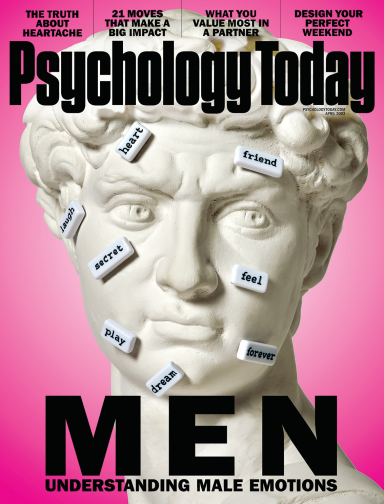Why "Happily Ever After" Doesn't Just Happen
Healthy habits build long-term happiness.
Posted October 24, 2017

In fairy tales, Prince Charming meets a fair maid. They fall in love and live "happily ever after." End of story. It's interesting that the relationship only begins just as the fairy tale ends. What would happen if the story continued? We'd likely see that a lot of these so-called storybook romances aren't as sustainable as the characters would like to think. And many of them that suddenly started with magical sparks would quickly end in a puff of smoke. Perhaps Prince Charming would no longer seem quite so "charming" to his not so fair maid who ends up falling for his best friend.
Okay, let us be clear that we are not against fairy tales or romance. It's just that the way relationships are often portrayed in popular culture does disservice to most couples. There is no magic wand, glass slipper or fairy dust that we can rely on to give us our fairy-tale ending. And "happily ever after" doesn't just happen.
In real life, lasting love takes some effort.
When our relationships don't measure up to the impossible ideal we see promoted and heralded everywhere we may feel utterly deflated. We soon realize that our prince or princess charming is actually a mere mortal. Imagine that! Why is it that we often rely on unrealistic expectations and wishful thinking when it comes to matters of the heart? In every other domain of our lives we are taught that it's work and effortful doing that lead to sustainable results.
In our professional lives, for example, we don't expect that landing our first job will immediately lead to a flourishing career. Similarly, when it comes to our health we don't presume that simply purchasing a gym membership and exercising one time will result in a toned and fit body overnight. With both of these endeavors we spend countless hours, days, months — even years — practicing and building new skills, and putting in the necessary work, whether that be taking training classes, or training at the gym. We regularly challenge ourselves by setting new work and fitness goals to enhance our performance. Many of us pair up with mentors in our professional lives who help us navigate corporate culture. And we hire personal trainers to take our fitness levels up a notch and guide us along the way. When we hit a plateau or feel bored — which of course at times we do — rather than give up, or switch jobs or gyms, we figure out novel ways to spice up our work and our workouts to keep us engaged.
So why when it comes to relationships — possibly the single most important factor to our well-being — do we seemingly leave the "ever after" to chance? Do we think that once we are married or committed to our wonderful partner, we will be able to coast merrily along on the initial burst of warm feelings and ride together into the sunset? We are never told the details of what leads to "happily ever after" in storybook romances, and since there is no manual that comes with commitment (if only there were!) many of us are left struggling in the dark wondering what went wrong when the relationship of our dreams just doesn't happen.
So where can we turn to for advice on what makes a couple happy together?
While there's no definitive list of dos or don'ts or twelve simple steps to achieve a perfect relationship, there are some promising findings based on the science of positive psychology to help build a healthy connection. We are pleased to introduce this inaugural blog based on an upcoming book we wrote on the same topic. Rather than fixing what's wrong in relationships, our posts will focus on what's going right in our relationships and the steps we take can take to further strengthen them. Specifically, we will discuss healthy habits that couples can cultivate to become happy together over the long term. Some of the topics we will address include:
- Distinguishing between a healthy and harmful passion
- Understanding and prioritizing positive emotions
- Savoring shared experiences with one another
- Identifying, building, and appreciating our strengths and those of our partner
We look forward to sharing latest research as well as real-life anecdotes from couples and attendees of the Romance and Research (TM) workshops we've presented internationally over the years. And we welcome your feedback and comments.
Imagine what would happen if we put a fraction of the work into our relationships that we do into other domains of our lives. We might just increase our chance of becoming happy together.
While we don't believe in fairy-tale endings, we do believe in forging brave, new beginnings.
References
Seligman, M. E. P. (2012). Flourish: A visionary new understanding of happiness and well-being. New York: Atria Books.


























